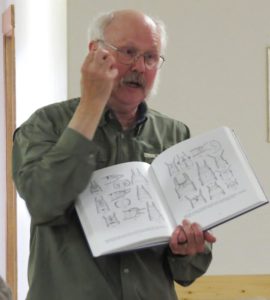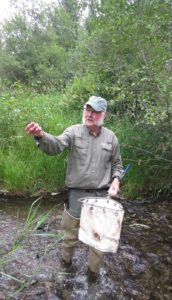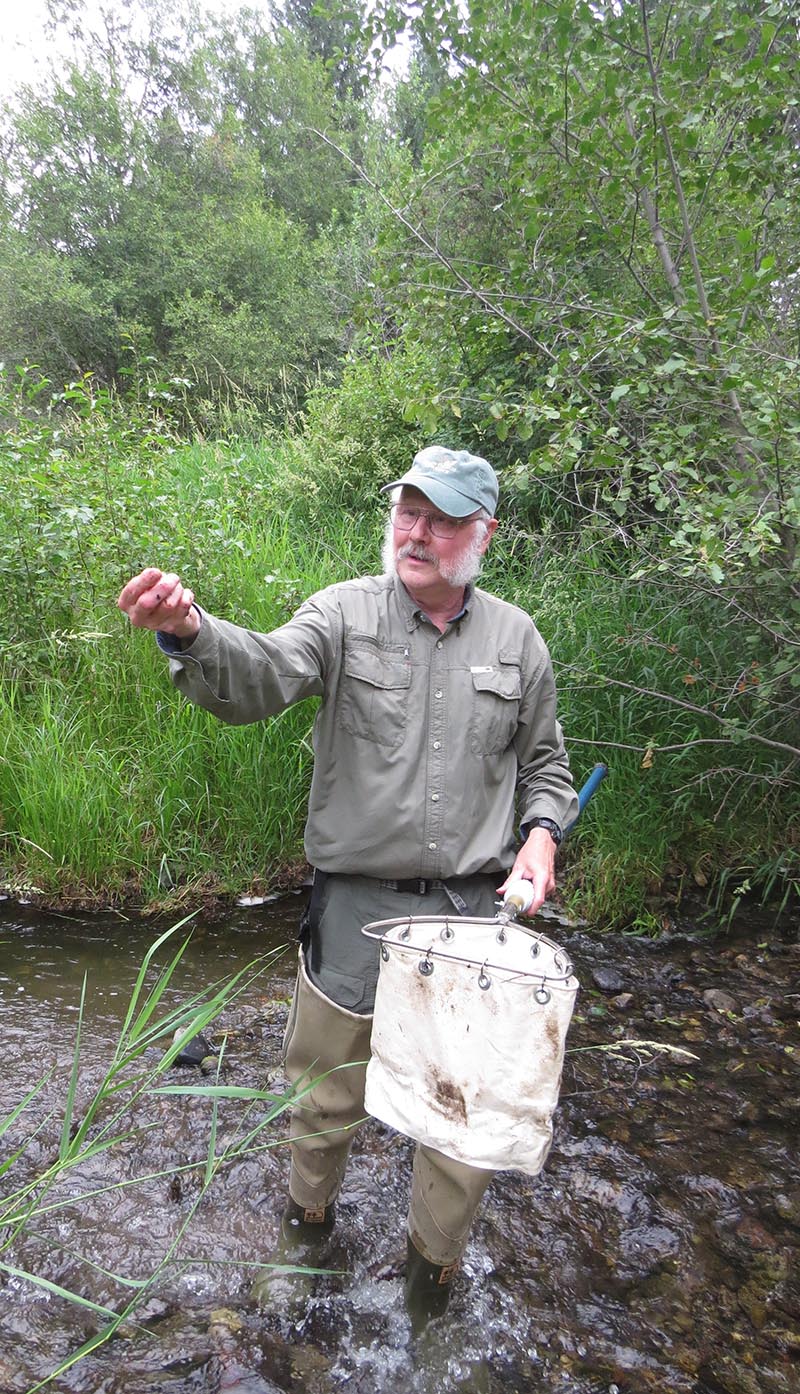Stream Ecology 2015
“No bugs, no fish!”

Mark shares from a book that he co-authored about macroinvertebrates.
On Friday, March 6th, OHA’s Highland Wonders series welcomed back a highly popular speaker from last summer’s outdoor events: freshwater ecologist and emeritus professor Dr. Mark Oswood.
The audience was pleasantly surprised to discover how captivating aquatic entomology can be when taught by a charismatic instructor who is passionate about his field of study. Combining a keen sense of humor with a well-prepared PowerPoint presentation, Mark Oswood held the group’s attention and increased the community’s awareness of, as he quoted E.O. Wilson, “the small things that run the world.” He went on to say, “Many of you are bird watchers. But these small things are the nuts and bolts, and the cogs in the machinery, that make life on earth happen. What I want you to get out of this is that you could do this as a hobby, as an avocation, just like bird watching.”


Mark Oswood lives in the Wenatchee area, retired from the department of Biology and Wildlife and the Institute of Arctic Biology at the University of Alaska Fairbanks, with a research specialty in freshwater ecology. Mark focused mainly on running waters (streams and rivers), with an emphasis on aquatic entomology (the scientific study of insects) and trophic structure of stream ecosystems. He has taught limnology (freshwater science), ecology of streams and rivers, aquatic entomology, as well as introductory biology. Most of his research was on ecology of stream insects, especially biogeography, and decomposition of organic matter. Mark has applied experience studying the effects of heavy metals from mining on streams, and has a side specialty in statistical analysis.
Throughout his career, Mark has taught a wide variety of “introduction to stream ecology” events in classrooms, Elder Hostels, and for government agencies, fly-fishing groups, and conservation organizations. “Seeing the diversity of invertebrates that live in streams can be analogous to a first experience looking at tide pool organisms,” he says. “Plus, aquatic insects are a stream’s way of turning green algae and brown leaves into fish food.”